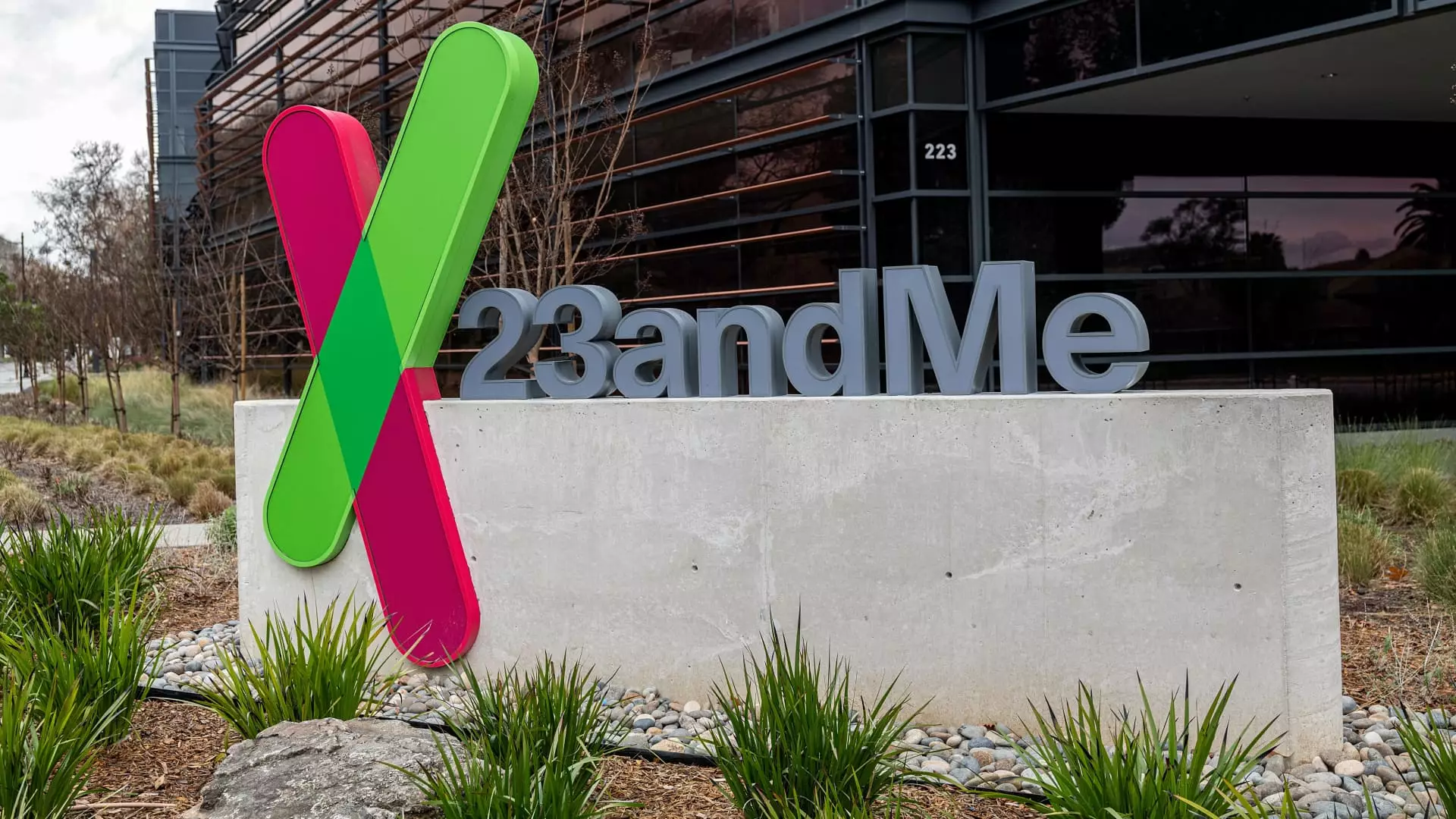In a shocking turn of events, 23andMe, the popular DNA testing company, has filed for Chapter 11 bankruptcy protection. The implications of this move are multifaceted, especially regarding the company’s vastly sensitive genetic database. As consumers continue to seek insights into their genetic heritage through at-home tests, one cannot help but confront the darker side of consumer genetic data—privacy and security risks that loom larger than ever before.
The Risks of Genetic Data Exposure
The uniqueness of each individual’s DNA sequence renders it a treasure trove for malicious actors, making the potential fallout from any data breach both profound and personal. As 23andMe grapples with the ramifications of its financial troubles, industry experts are gearing up to address privacy concerns, amplifying warnings about the dire consequences should this data fall into the wrong hands. Recent revelations, including a significant hacking incident that compromised the data of nearly 7 million users in October 2023, only heighten these fears. DNA data isn’t merely a series of biology; it’s the blueprint of one’s entire biological identity.
With data protection at risk in the midst of bankruptcy proceedings, customers should remain vigilant. California’s Attorney General Rob Bonta has been an outspoken critic, advising users to consider deleting their genetic data. His perspective echoes a broader public sentiment: that trusting third parties with such intimate information is becoming increasingly untenable.
Corporate Reassurances: Are They Enough?
As 23andMe vows to find a partner committed to protecting customer data amidst this bankruptcy turmoil, the question arises—can we trust corporate assurances in times of financial strife? The recent breach raises red flags about the vigorousness of 23andMe’s security protocols. Although they claim no changes will be made to data storage and management during this transition, history has shown that financial crises often lead to compromised security measures. Will a potential buyer truly prioritize user privacy when their primary aim is to recover financial losses?
Their FAQ maintains that customer privacy remains a paramount concern, but in a world of mounting data theft, words alone carry little weight. In reality, without stringent regulatory oversight, genetic data can easily be mishandled, either inadvertently or maliciously.
The Blind Spots in User Responsibility
Despite all the alarm bells sounding from experts like Adrianus Warmenhoven, who fervently advises consumers to delete their genetic data, the burden of safeguarding one’s information ultimately falls on the users as well. While it is crucial to understand how to delete accounts and accompanying data effectively, consumers must take a hard look in the mirror: have they been diligent about their digital footprints? The average user often reserves little thought for agreements made at the moment of purchase, surrendering information willingly under the guise of convenience without understanding the long-term implications of access permissions they grant to companies.
Re-examining our interactions with tech companies is necessary. We must cultivate a culture of skepticism that prioritizes personal security over convenience. The tools for monitoring and protecting our digital identities exist, yet they require an informed and proactive user base that insists on accountability from corporations.
The Call for Regulation in Genetic Data
In light of mounting anxieties around data security, it is imperative for legislators to move from talking to action. The genetic testing industry—the Wild West of personal information extraction—requires robust regulatory frameworks to safeguard consumer interests. If the government fails to step in and implement stringent privacy laws specifically tailored for genetic data, the risk remains high that future breaches will continue to haunt consumers, leading to increased identity theft and insidious uses of genetic information, such as discrimination by insurance companies.
Legislation must address the unique nature of genetic data and dictate how companies store, share, and delete this information. Everyone deserves the right to their genetic identity without the fear that it is tethered to a precarious business model or corporate bankruptcy.
In the wake of 23andMe’s financial plight, one truth stands glaringly evident: while the allure of uncovering our genetic legacies remains strong, we must tread carefully, lest we relinquish our most personal secrets to an industry that has not yet proven it can handle them responsibly.

